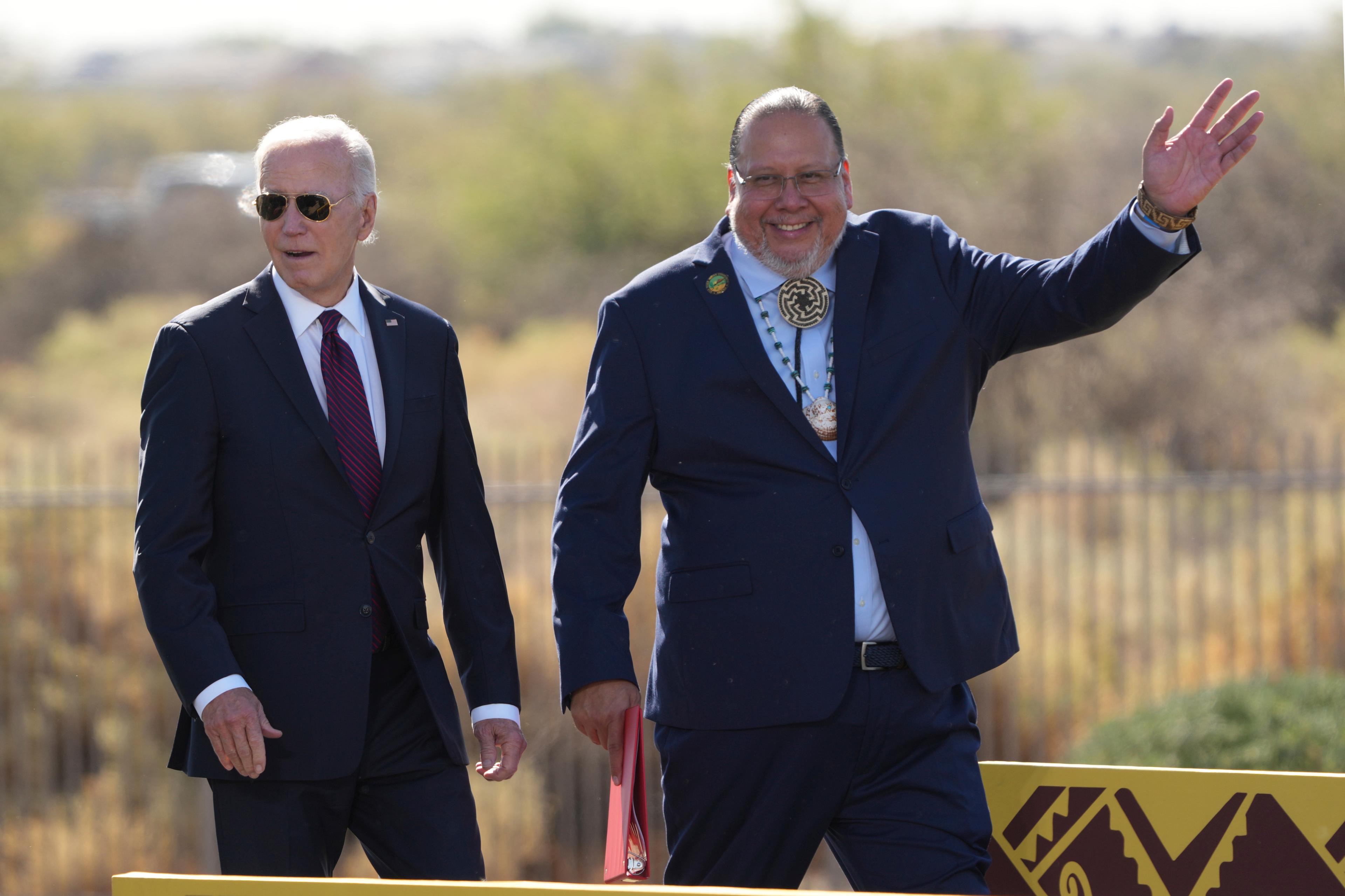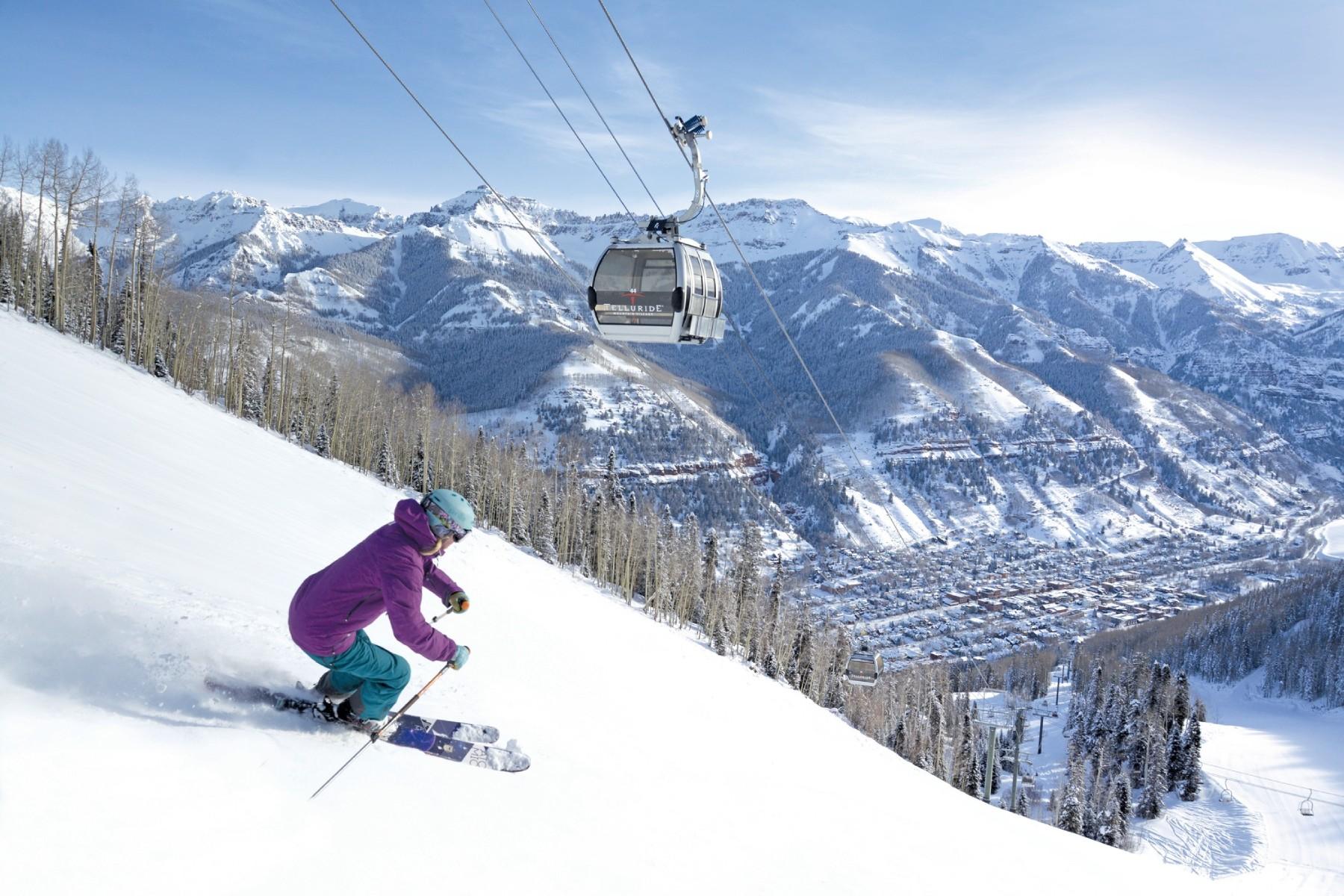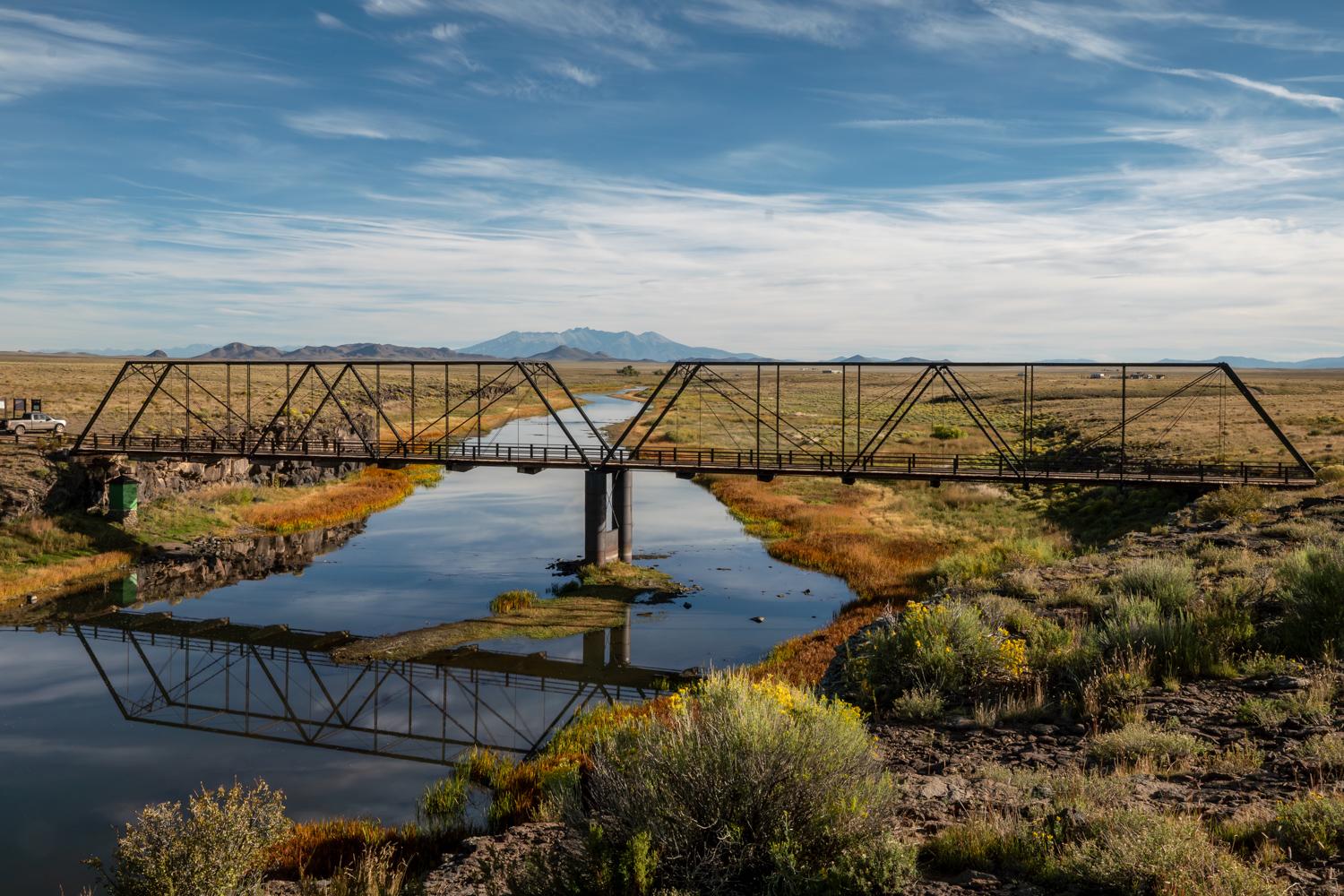
President Biden apologized today to victims of the US government’s 150-year Indian Boarding School system at a ceremonial gathering at Arizona's Gila River Indian Community.
Amidst a mountainous backdrop, on a stage where dancers had performed, drummers had drummed, and Secretary of the US Department of Interior Deb Haaland had spoken, Biden took the stage and spoke for about 30 minutes as morning turned to afternoon, calling the apology “the most consequential thing” he was called on to do during his presidency and describing the policy as a shameful blot on American history.
“After 150 years, the United States government eventually stopped the program, but the federal government has never, never formally apologized for what happened until today,” he said. Dressed in a suit, tie and sunglasses, he said to the gathered crowd: “I formally apologize as president of the United States for what we did. I formally apologize, and it’s long overdue.”
The apology was live-streamed and watched by some of Colorado’s Native American leaders, including Rick Waters, executive director of the Denver Indian Center whose parents both went to Indian Boarding Schools, and Heather Shotton of Fort Lewis College in Durango, the site of a former boarding school now engaged in efforts to seek reconciliation for the trauma the system caused.
Waters said of Biden’s speech: “I think it was a very strong statement, and historical, because it’s never been done by anybody at that level.” He added: “I'm still digesting it . . . he hit on different areas, everything from the apology to healing.”
Shotton, vice president of Diversity Affairs at Fort Lewis College, said she was feeling both sadness and hope, given her closeness to the issue: she said her grandparents and several aunts and uncles attended the boarding schools, too.
“I’m happy that we are in that place, and the official apology has been issued by the president,” she said Friday afternoon. “It’s been a long time coming. I think [there’s] lots of emotions for many of us in indigenous communities.”
Biden’s comments were often interrupted by cheers.
“I have a solemn responsibility to be the first president to formally apologize to the Native peoples, Native Americans, Native Hawaiians, Native Alaskans. … Quite frankly, there's no excuse that this apology took 50 years to make – the pain it has caused will always be a significant mark of shame. A blot on American history,” he said.
The federal government’s boarding of Native students has long been seen as a historical secret intended to discontinue Native culture, pride and language by stripping children of their attachment to their parents and by sanctioning them for speaking in their native tongues, so that the culture would die during their generation.
The educational opportunities at boarding schools were presented to Native families as a perk, not as a cultural erasure.
“At first, in the 1800s, it was voluntary, asking tribes to send their children away to vocational schools, but then the federal government mandated the removal of children from their family,” Biden said.
The boarding school program lasted from the early 1800s until the 1970s, and during that time period, an estimated 1,000 children died or disappeared.
Biden’s speech showed awareness that the system cost more than the loss of life and culture; children also lost their identities, their ability to be affectionate toward others, and their attachments to their relationships with their parents and communities.
“As president, I believe it’s important that we do know,” Biden said emphatically. “Generations of native children stolen, taken to places they didn’t know. The native community silenced… children would arrive in schools, their hair was chopped off, their names literally erased, replaced by a number or an English name.”
He said some children never came back home; those who did were worse off upon return. He related a story he’d been told from a woman who’d been forced to attend a boarding school, who’d told him: “When I talk my tribal language, I would get hit. I lost my tongue. They beat me every day.”
Waters, who was watching the broadcast from his office at the Denver Indian Center in Southwest Denver, said that his mother and father had attended different boarding schools, and met during a competition between the two schools. His mother’s opportunities to receive familial love were replaced by the more somber dorm monitors – who weren’t known for being affectionate.
He said the boarding school system was responsible for his mother’s tendency to stiffen when he tried to be affectionate with her.
“It wasn’t until later years that I could actually see it – that she lacked some of those inherent traits of nurturing,” he said. “In my whole life, I only remembered one or two times where she actually gave me a hug.”
For Shotton, there was a similar emotional resonance: “There is always a bit of sadness when, particularly for those of us that are connected to this history, when we think about the intergenerational impacts and harm that many of our families have endured.”
She added: “There was also a bit of hope about what the future could hold.”
Fort Lewis College is working on the hope angle, connecting with History Colorado for a study on the impacts of the boarding school system after a law was passed to research the harms a few years ago, as noted on the college’s website:
“Governor Jared Polis signed the Native American Boarding School Research Program Act (HB22-1327) into law on May 24, 2022. This act establishes the federal Indian boarding school research program and directs History Colorado to investigate the lived experiences of students at the one-time Fort Lewis Indian Boarding School in Hesperus, CO, and identify potential burial places of students who perished while attending the school.”
According to the text of the new law, it “establishes the federal Indian boarding school research program at . . . History Colorado, to research and make recommendations to promote Coloradans' understanding of the physical and emotional abuse and deaths that occurred at federal Indian boarding schools in Colorado, including the victimization of families of youth forced to attend the boarding schools and the intergenerational impacts of the abuse.”
Secretary of the U.S. Interior Deb Haaland spoke prior to Biden, explaining that the system was “perpetrated by the agency that I now lead. For decades, this terrible chapter was hidden… Our administration’s work will make sure no one ever forgets.”
Haaland is the first Native American to serve in a U.S. Cabinet position. Calling the boarding school system “a federal agenda to assimilate and eradicate native peoples,” she shared that her maternal grandparents survived a Catholic boarding school. “I stand on their shoulders today,” she said, adding: “We know that the federal government failed to annihilate our languages, our traditions, our lifeways. It failed to destroy us ‘cause we persevere”
She said she and others in the Interior Department spent more than a year preparing for the moment. On a tour she called “The Road to Healing,” she said her team traveled the country to talk to people about the traumas left behind by the experience.
“We’re creating an oral collection of first person narratives from boarding school survivors,” she said. To loud applause, she said those oral histories could be housed with the Library of Congress or another public space to be made into learning materials.
She began to choke up when she expressed gratitude for the team who worked with her to make a formal apology happen.
“Today is a day for remembering, but it’s also a day to celebrate our perseverance… despite everything that has happened, we are still here,” she said.









